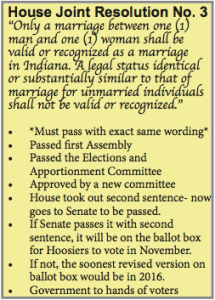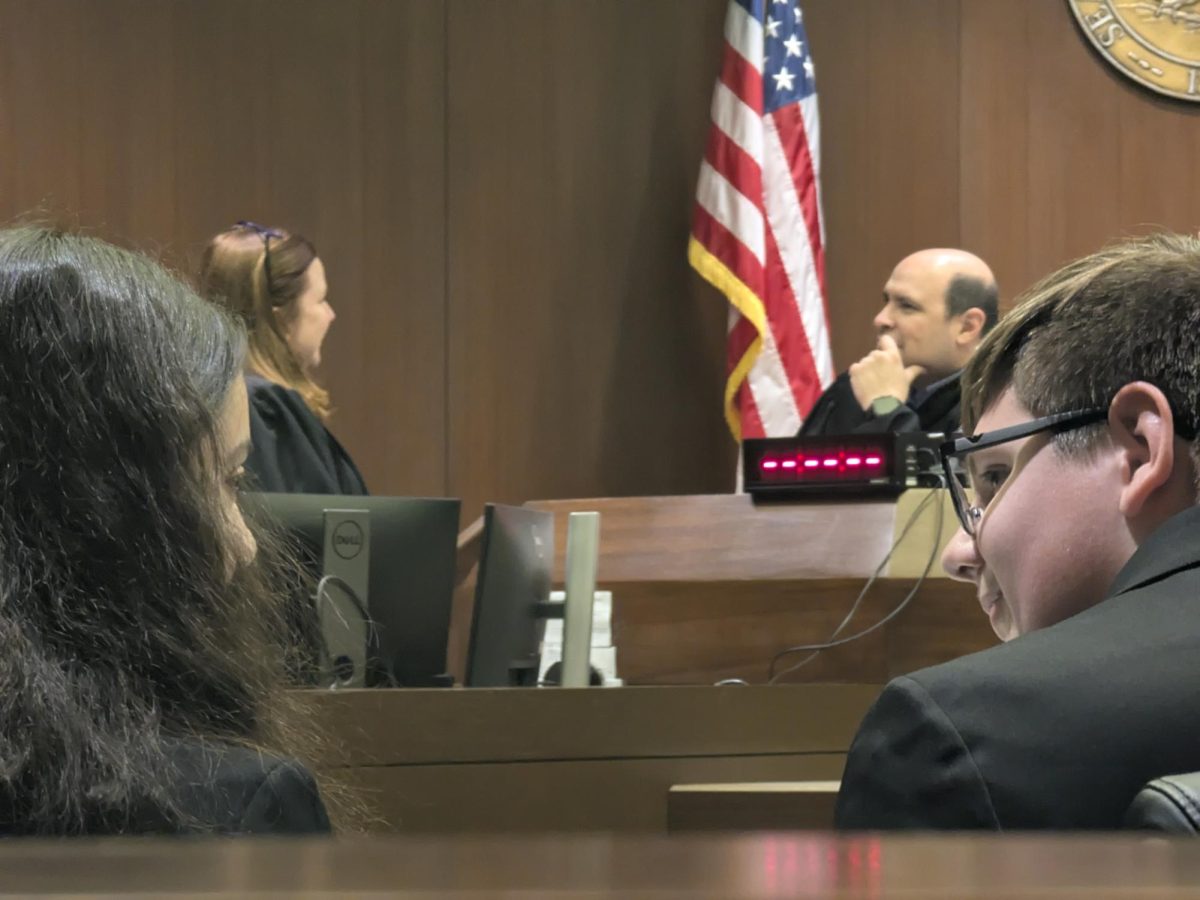In the Indiana General Assembly there is an amendment being proposed for the Indiana State Constitution. The intent is to add a new constitutional amendment to solidify the traditional definition of marriage.

Gay marriage is already outlawed in Indiana, however this would give a solid legal standing if political atmosphere changes in the future.
“It’s already gone through [the First Assembly], and this proposed amendment must be agreed by a second general assembly, and then ratified by a majority of the state voters,” government and law teacher Adam Nelson said.
Some GOP caucuses asked Indiana residents the week of January 5 for their view on the HJR-3 amendment. The poll showed that 53 percent support the first sentence of the bill; however, 54 percent of voters did not support the bill after hearing the second sentence and understanding that civil unions and domestic partnership benefits would be at risk.
Those that are desiring a homosexual marriage may feel offense at the thought of it being permanent in the State Constitution. The amendment specifically outlaws the marriage between homosexual couples.
“The constitution is supposed to give rights to people, but this amendment is actually taking it away,” senior Christian Hartselle said. “This is the first time in history this has happened in Indiana so that’s why it is a big deal.” According to Hartselle, the decision on gay marriage would be permanent under law instead of the opinions of the judges in the courts of Indiana.
Some believe that it is a basic human right to be married to whomever they want to be married to, and that it is an infringement upon rights if that is not what is given. They feel that they are born the way they are and can not help their attractions to the same sex, so they should receive the same rights. Companies like Eli Lilly feel that there would be difficulties in recruiting employees in a state that does not allow all marriages, The competition would be harder if the marriages employees have are not allowed.
“I think that it’s a step back for human rights especially in terms of necessity,” junior Liam O’Sullivan said, “This would eliminate things like hospital visitation rights, which sounds unimaginable to me.”

While there may be debates on the necessity of going through the process of applying the amendment to the constitution, the banning of gay marriage is still something desired by some. The check and balance system is a long and drawn out process, and it is difficult to change once it is established.
Those that support the amendment believe that it is only natural to have one man and one woman. Children growing up in homosexual family homes is also something of concern because of no father or mother present in the household. Reverend Ron Johnson said on the Indianapolis Star that this could be a “Pandora’s box”, and it could open debates to other marriages such as polygamy and we could lose where we should draw the line. Some Christians believe the ban should take place, while others do not. Marriage is sacred to various faiths, and the Christian viewpoint is considered because of the country being founded upon Christian principles.
“I am a follower of Jesus Christ, so therefore I follow the Bible and use it for guidelines on how to live my life,” junior Molly Baldwin said. “The Bible says that God established marriage to be between a man and a woman, so it would be wrong of me to agree with the idea of gay marriage and/or the legalization of it when God tells us that it is a sin to have a marriage of any type other than He describes.”
Many Christians believe marriage among humans is meant to be a metaphor, and the idea of this sacred illustration to be tampered and redefined is hard to tolerate for them.
“The first people on earth were Adam and Eve, a man and a woman, and they were created to populate and have a successful marriage,” junior Julia Costan said. “Even though I don’t agree with gay marriage, I love and respect everyone the same.”
As of Jan. 27, the House voted and decided to remove the second sentence of the proposed amendment. Due to this change, the Senate will now have to vote on the amendment. If they decide to pass the amendment including the second sentence, then it is still possible for HJR3 to be on the November ballot. However, if they do not approve of the second sentence, then the amendment will have to go through the whole process again. It must pass two consecutive but separately elected legislatureswith the exact same wording, and then it may be possible to be voted on by Indiana voters in the 2016 ballot.









